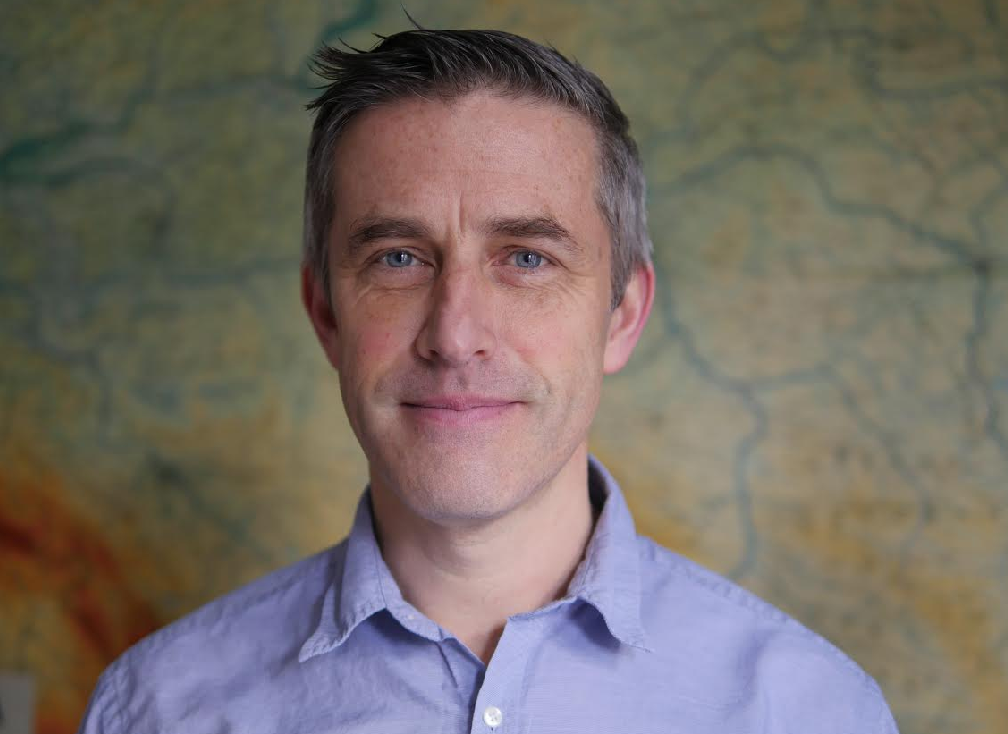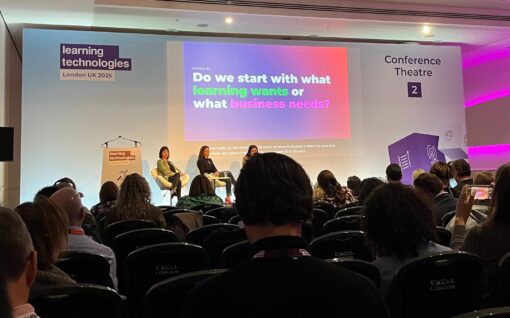Research needs to be more accessible and interactive. An interview with Professor Joe Smith

Next in our series on how research is communicated, Insights Media head of content Roisin Woolnough, interviews professor Joe smith, director of the Royal Geographical Society.
Conversation. Noun: a talk, especially an informal one, between two or more people, in which news and ideas are exchanged.
This is exactly what academics and academic institutions should be doing on an ongoing basis: having conversations with people (and not just academic people but ordinary folk too), exchanging news and ideas. So says Professor Joe Smith, director of the Royal Geographical Society (with the Institute of British Geographers).
“We need researchers to share their knowledge in an open way and allow it to be dynamic,” says Smith. “As institutions, we need to be willing to have a conversation with the people ‘formerly known as the audience’.”
‘Formerly known as the audience’. Now what does Smith mean by that? He refers to a slightly jokey phrase used by the likes of US media and tech commentator Jay Rosen. The word ‘audience’ denotes a passive group of people waiting to be told something – academics emerging from their ivory towers, preaching from the pulpit and retreating back into their studies, for example. Those days are long gone (or should be), says Smith.
More academics need to be proactively engaging with the general public, fostering networks and conversations. And they need to be doing a lot of it online, enabling conversations to be current and relevant. Rather than waiting for research to be 100% watertight and peer reviewed, there are lots of areas where academics could be testing thoughts or sharing first findings as they emerge. This enables them to get a debate going early, build interest in and momentum around a topic. It doesn’t work for all areas of academic work, but it can help turn findings into action.
Digital engagement
Smith is a big proponent of digital engagement and learning. While he doesn’t dispute the quality and impact of traditional mediums such as David Attenborough’s series (who could?), he says there are other opportunities for academics to get a dialogue started and they need to take them. “It’s a real mistake to lean too heavily on legacy media as a way to wave a magic wand around public interaction – we’re in a different place now. Give people access to the latest available knowledge. Allow them to engage in the conversation and enable different levels of interaction. Do this and you can greatly amplify the impact of hard won new knowledge.”
Given the highly topical nature of much of the research going on – climate change being an obvious example – it is imperative that academics share their findings in a timely and accessible way. And if there are grey areas and unanswered questions, so be it, says Smith. “A really important thing for the research community to do is make clear that we are learning as we go with this. Our understanding of this issue isn’t finished. Humanity, collectively, will shape how the story ends. We know that we can really make a difference to outcomes, although we can’t predict what they are. What we do know is that ambitious, early action is efficient – more efficient than waiting to hone the best answer.”
Social media is a great engagement and discussion tool that many academics have already embraced. Smith singles out three researchers that he thinks use social media really well and have really advanced the debate about climate change as a result. Those three are: Dr Tamsin Edwards, climate scientist and geography lecturer at King’s College London (@flimsin), Mark Brandon, professor of polar oceanography at the Open University (@icey_mark) and Richard Betts, climate professor at the Met Office (@richardabetts). What makes them so good, according to Smith? “They have been very patient and willing to explain the nature of their research and have made it easier for a lot of people to trust the findings of climate science. One of the markers of these three is that they make a point of saying what they don’t know and where the uncertainties lie. And they also say ‘woah, that’s an exaggeration’, when they need to. That builds trust.”
Authentic relationships
Trust and credibility are key to getting people on board with research, but trust in institutions has plummeted in recent years so researchers need to build credible, authentic relationships with people if they want their message to land. “It is a case of earning trust as researchers, rather than simply having an authority earned by the title,” says Smith.
He thinks the academic community needs to involve the public in much more expansive, explicit conversations about issues and how they link to each other. “I’ve always felt it’s a mistake to push climate change to the exclusion of other issues,” he explains. “We need to connect it with other issues, such as urbanization and the quality of public health, connecting climate change to sustainability more widely. We need to have conversations about what we want in terms of quality of life and hit multiple objectives at the same time.” For instance, creating cities, towns and villages that enable children to walk or cycle to school safely addresses several goals: reduced co2 emissions, reduced traffic on the roads, reduced levels of inactivity and obesity among children, improved mental health of children and so on.
What we need, Smith says, is more sensible, nuanced conversations about how to live our lives in the best possible way for ourselves, others and the planet. He thinks we are going through some difficult learning at the moment, but hopes we can come through it wiser and more sensitive to the needs of the environment we live and work in. “We are overdue an outbreak of wisdom. Climate change finishes Darwin’s sentence. It leaves us understanding our modest role in relation to the non-human natural world. We’ve had it strongly confirmed that we are not in control of everything and the natural world is not there purely for our uses.”
Instead of talking about the end of the world or looking at issues in isolation, we need to take a more holistic approach to societal challenges. Researchers, the media and the public at large need to be thinking about and talking about the bigger picture. “Among the mistakes we are making is to wrap climate change up with just a few simple references. Polar bears, for example, or plastic straws. We are summarising complexity in just a few things and the danger is that too many public conversations around this have been tactical rather than strategic. Plastic straws and bags could be bridges to more strategic thinking, but are no use without that next step to the bigger picture.”
Connect with the message
The academic community needs to get better at addressing complex subjects in an interesting, meaningful way, so that people can connect with the message. This is true not just in relation to climate change, but when communicating the findings of any piece of research. To achieve this, Smith thinks academics need to get comfortable using a range of voices and mediums. Academics understand that a teaching voice is different to an academic journal voice. Now they need to think about the voice they use with the general public. Not every academic is going to be good at blogging or giving talks to school children or getting up on the stage at public events, but those that are, need to get out there and get their voices heard. And the institutions behind them need to be encouraging, acknowledging and rewarding public-facing work.
The recognition of the policy and public impact of research in the Research Excellence Framework was a really important step in the right direction, encouraging and incentivising the academic community to share their findings. In terms of climate change, Smith says there is a real appetite for change. Public interest in and participation in the issue is strong, but what is needed is a more holistic approach to change. This is where Smith likes to borrow a phrase from the poet and author Kathleen Jamie – ‘the care and maintenance of the web of our noticing’. He says: “Climate change is encouraging us all to extend the web of our noticing. If we are clever about how we work with this latest high tide of public attention and extend the web of our noticing, we could address climate change and also some other big issues at the same time.”
Also in the series . . .

